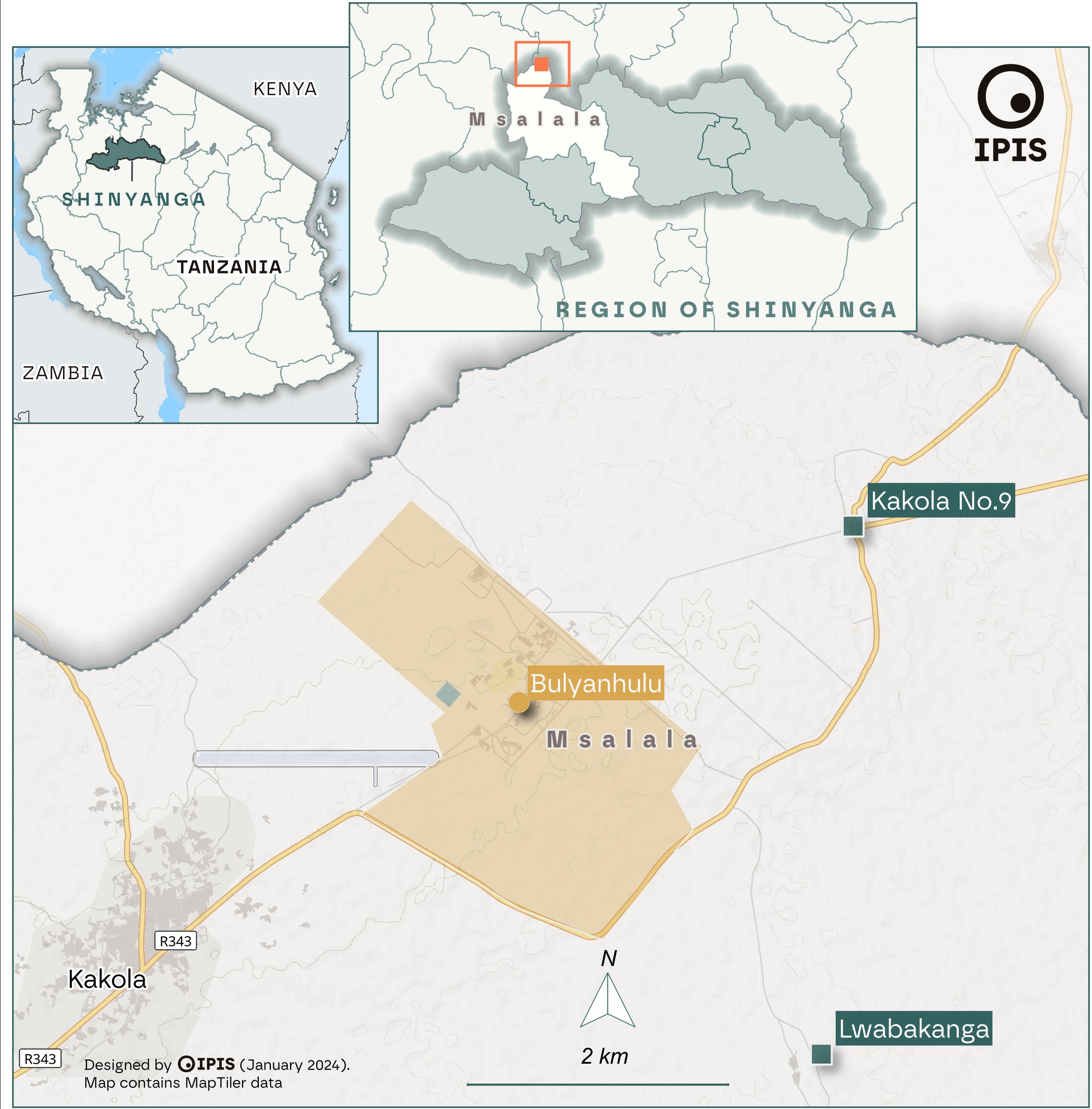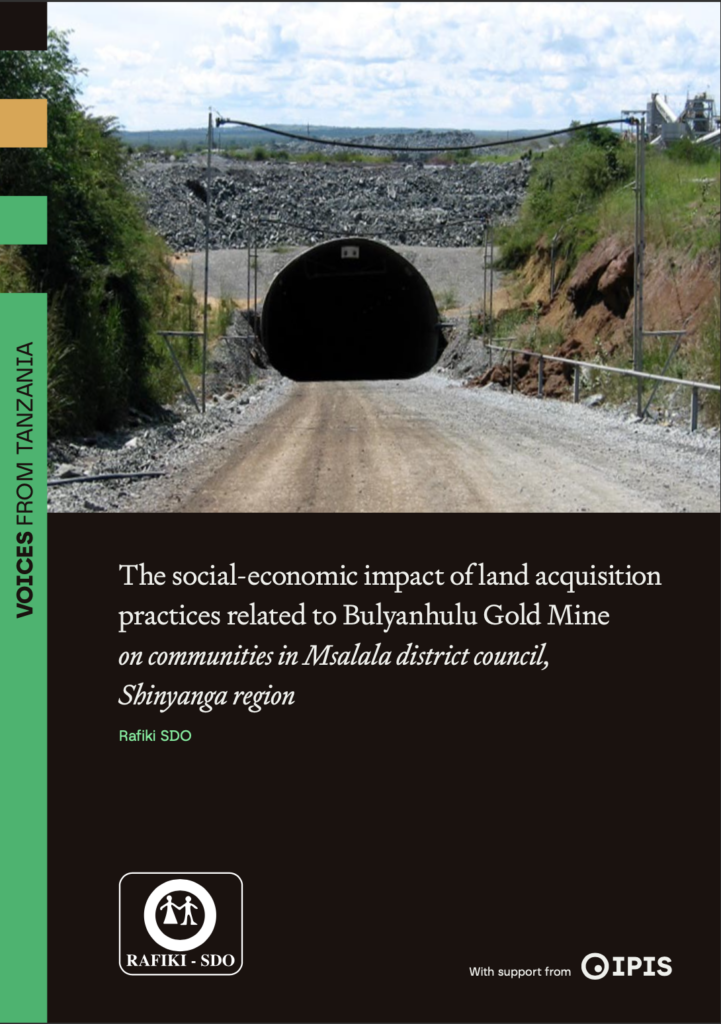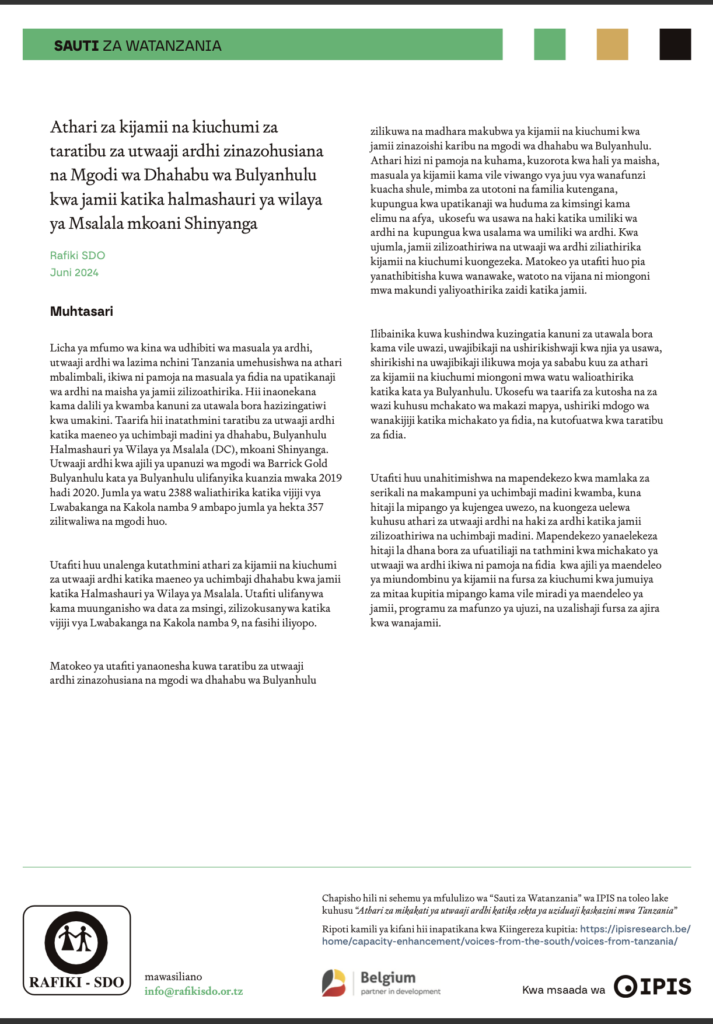This publication is part of IPIS’ Voices from Tanzania series and its edition on “The impact of land acquisition practices in the extractive sectors of northern Tanzania”.
In their Voices from Tanzania study Rafiki SDO assesses the socio-economic impacts of land acquisition practices by the Bulyanhulu gold mine on 2 villages in Msalala district council, Shinyanga region.
Shinyanga region in Tanzania is known for its abundant mineral resources, particularly gold and diamonds. Land is an important asset in mining, as access to land is needed to access valuable minerals and ores. Therefore, land acquisition is often required to make mining activities possible. However, in reality land acquisition for mining purposes has raised serious concerns regarding the impact on local communities and the environment.
The process of acquiring land for mining often involves the displacement of people from their ancestral lands, leading to various social and economic consequences. In many cases, the rights of women and children are more impacted by land acquisition practices. Issues with compensation and the specific needs and rights of women and children in land acquisition processes can perpetuate gender inequalities and hinder sustainable development in mining areas. In Shinyanga, issues with land acquisition practices have been reported from the areas surrounding the Bulyanhulu gold mine, an underground gold mine in Shinyanga’ s Kahama district. From engagements with communities surrounding the Bulyanhulu mine, Rafiki SDO has learned that the 2019-2020 land acquisition in the area has raised significant concerns and challenges in affected communities regarding compensation, rights of women and children, and resettlement. To assess the socio-economic impacts of land acquisition by Barrick’s Bulyanhulu gold mine, Rafiki SDO collected primary data from affected communities in Lwabakanga and Kakola No.9 villages.
The findings from the study
The findings indicate that land acquisition practices related to the Bulyanhulu gold mine had significant social and economic consequences for the communities living around the mine.
These impacts include displacements, loss of livelihoods, reduced accessibility of basic services, social issues such as higher rates of student dropout from school, teenage pregnancies and family separation, inequitable access to land, and a decrease in land tenure security. Overall, communities affected by the land acquisition felt their social and economic vulnerability increased. The study’s findings also confirm that women, children and youth are amongst the most affected groups in the communities.
It was observed that failure to observe good governance principles such as transparency, accountability, and participation in an equitable, inclusive, and responsible way was one of the major reasons for social and economic impacts among affected people in Bulyanhulu ward. The lack of adequate and clear information about the resettlement process, limited participation of villagers in compensation processes, and non-adherence to compensation procedures were among the issues found.
The recommendations
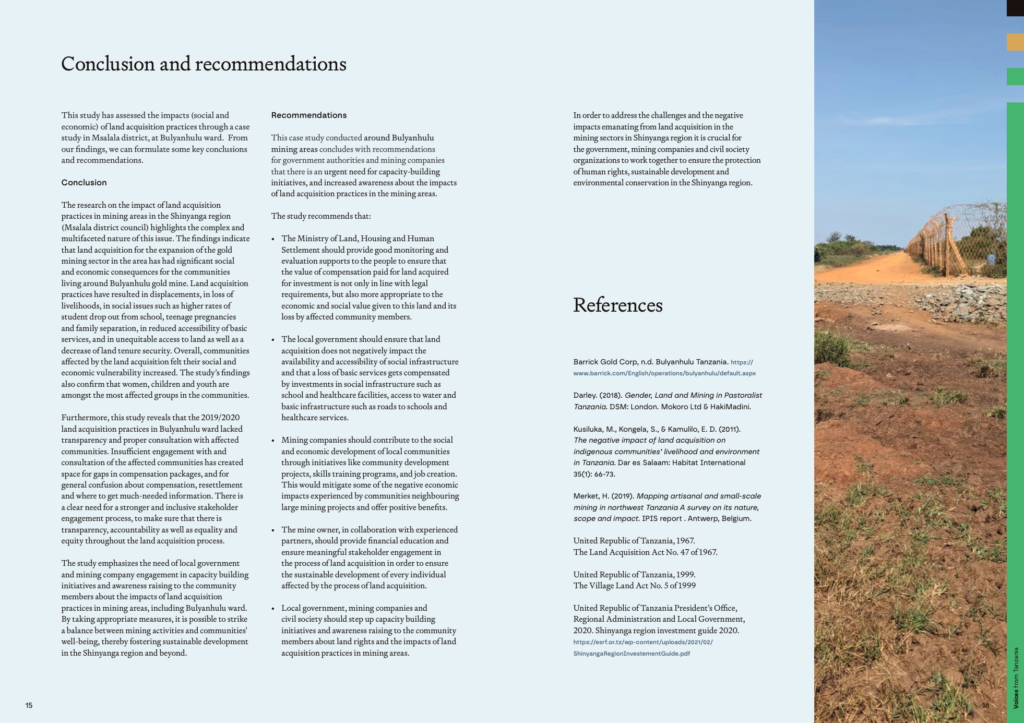
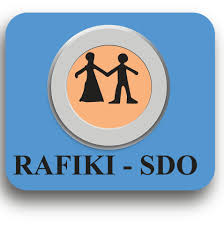
Rafiki SDO is a Tanzanian non-profit that exists to promote the rights of young people and other vulnerable groups in Tanzania through awareness raising, advocacy and services delivery to improve the quality of basic education, work to eliminate child labour, increase young people’s access to sexual and reproductive health services, strengthen youth livelihoods and continued organizational strengthening for effective service delivery.

This publication has been produced with the financial assistance of the Belgian Directorate- General for Development Cooperation and Humanitarian Aid (DGD). The contents of this document can under no circumstances be regarded as reflecting the position of the Belgian Development Cooperation.
The publication does not represent IPIS’ research or views. It is based on the surveys and analyses conducted by Tanzanian civil society organisations and solely belongs to them.
Picture: Main entrance to the underground mine of the Bulyanhulu industrial gold mine in Msalala district council. ©Bulyanhulu Gold Mine

